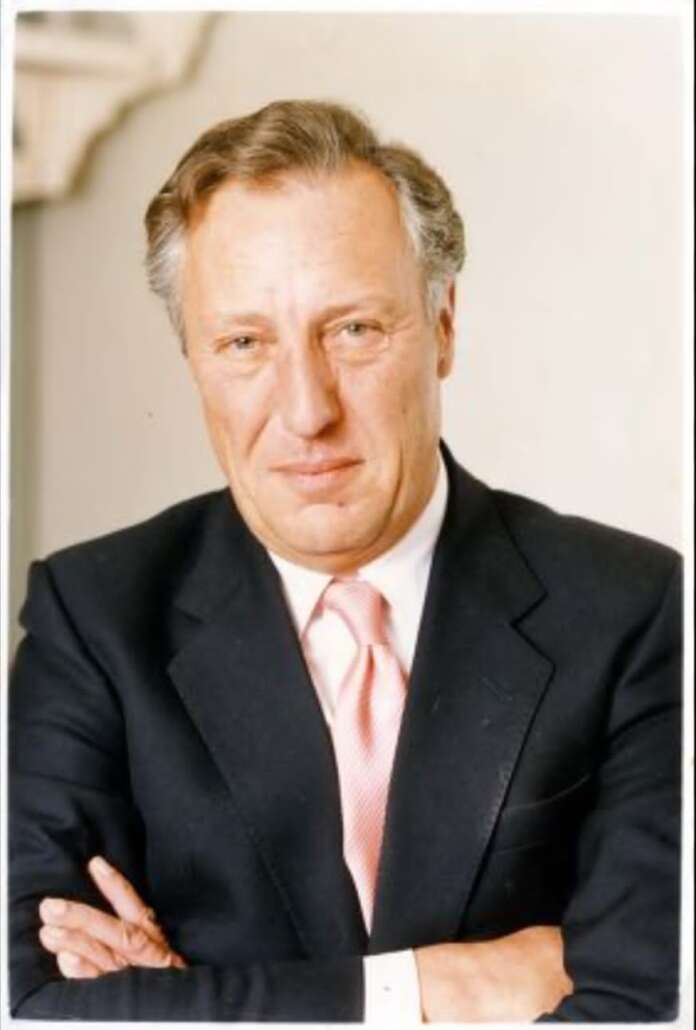A Profound Salute from a Grateful People
In the quiet of history’s pages, some names resound not by the battles they fought, but by the voices they raised in defense of truth, even when truth was drowned in blood and forgotten by the world. Sir Frederick Forsyth, the legendary British author and journalist, was such a man, a lone Western voice who stood with a brutalized people at their hour of annihilation. Today, as he takes his final bow at the age of 86, every Igbo man, woman, and child owes him not just a minute of silence; but a lifetime of remembrance.
Forsyth was no ordinary journalist. In 1968, when the civil war in Nigeria reached its genocidal crescendo, and when the world turned a blind eye to the starvation, carpet bombings, and mass executions of Igbo civilians, Frederick Forsyth chose conscience over career. He resigned from the BBC because they refused to let him tell the truth, the gory truth of Biafra, of babies bloated from hunger, of mothers clutching lifeless infants, of cities reduced to rubble, and of a people simply seeking to live.
He flew into Biafra when it was a land cut off by land, air, and sea, a land with no hope, no allies, no voice. He became that voice.
His “The Biafra Story”, published while the war still raged, was no mere book, it was a cry from the wilderness, a sacred text of resistance, a beacon that illuminated the scale of horror the Nigerian state visited upon Biafran civilians. Long before the world would learn the term “ethnic cleansing,” Frederick Forsyth documented it with painful clarity. He did not romanticize; he reported. He did not flatter; he testified. And for this, the Igbo Nation shall never forget.
He later penned “Emeka”, a powerful biography of General Emeka Odumegwu Ojukwu, the Oxford-educated rebel leader of Biafra, offering Western readers a deep and nuanced insight into the mind of the man who led his people into secession not out of ambition, but in desperate response to pogroms and national betrayal.
Forsyth’s influence endured beyond the war. His works inspired the critically acclaimed Hollywood film, “Tears of the Sun”, starring Bruce Willis, which, though fictional, echoed the Biafran experience and bore the emotional scars of a war the world tried to forget; but which Forsyth ensured would never be buried in silence.
To us, Frederick Forsyth was not just an Englishman. He was a Biafran by conviction. He was an Igbo by empathy. He was our Ezi Enyi, a true friend who stood when it was costly to stand.
In this season of his passing, we weep, not just for the death of a man, but for the fading away of a generation of truth-tellers who could not be bought, who refused to look away when injustice screamed.
We invoke the ancestral spirits of the slain children of Asaba, the massacred of Owerri, the famished of Abagana, and the forgotten martyrs of Umuahia to welcome this man who bore witness to their pain.
May Chukwu Okike Abiama, the Almighty Creator, grant Frederick Forsyth a seat among the righteous.
May the angels who guard the gates of paradise salute him as one who defended the defenseless.
May his soul journey peacefully into eternity, draped not just in British honor, but in Biafran gratitude.
As we, the sons and daughters of a once-rejected people, still rebuild from the ashes of that terrible war, we shall etch his name in our memorials, teach our children about him, and lift prayers for him at our altars.
Laa na udo, Frederick Forsyth.
Laa na udo, ezi enyi anyị.
Rest in peace, our brother, our voice, our friend.
May the soil of the land you loved embrace you with warmth.
May heaven remember you as we on earth will never forget.
21 gun salute to the immortal pen that gave Biafra a voice.
Farewell, O great soul.
— tpmifeanyi Aguikwu —





